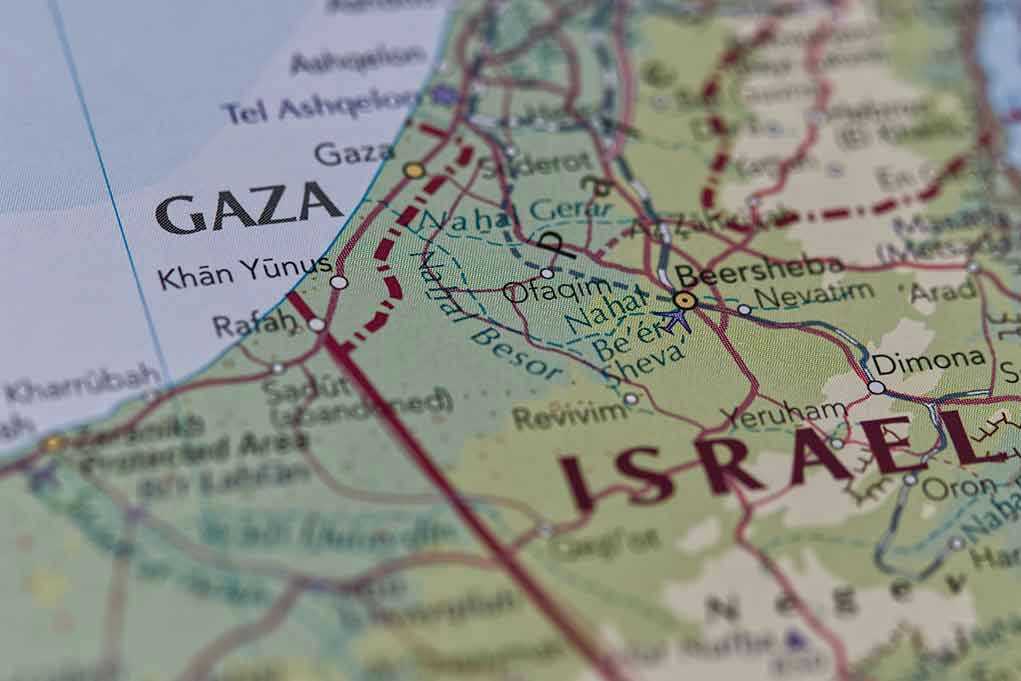
Israel just lit up Houthi-controlled ports in Yemen, and the world’s watching to see which domino falls next as the Red Sea turns into a powder keg—again.
At a Glance
- Israel launched targeted airstrikes on Yemen’s Houthi-controlled ports, citing threats to Israeli and international shipping.
- The Houthi rebels, backed by Iran, responded with missile attacks on Israel, escalating regional tensions.
- The Red Sea shipping corridor faces renewed disruption, threatening global trade and raising insurance costs.
- The U.S. and Western allies weigh further military involvement as the proxy war landscape intensifies.
Israel Strikes Back as Houthi Threats Escalate
Israel’s military response to the Houthi’s ongoing attacks in the Red Sea brings the region to the edge, as airstrikes targeted key ports—Hodeidah, Ras Isa, and Salif—along with the Ras Kanatib power plant and the infamous Galaxy Leader vessel. Israeli officials aren’t mincing words: these facilities, they say, have become staging grounds for terror operations, weapons transfers from Iran, and direct threats to freedom of navigation. The Houthis, true to form, fired back with missiles aimed at Israeli territory, but the IDF reports they shot them down without casualties. This tit-for-tat is just the latest chapter in a proxy war that’s been simmering since the Houthis hijacked the Galaxy Leader and turned it into a floating surveillance platform back in 2023. For those still clinging to the fantasy that this doesn’t affect the West, think again: the Red Sea isn’t just a headline—it’s a supply chain lifeline for the global economy. When these lanes get choked, it’s not just Israel or Yemen paying the price. Every American family sees it at the gas pump and the grocery store.
Israeli airstrikes are clearly designed to send a message—not just to the Houthis, but to Tehran and anyone else itching for a slice of this chaos. The IDF’s statement emphasized that the Houthis have embedded military operations within civilian infrastructure, a tactic that puts ordinary Yemenis in the crossfire and makes international condemnation conveniently complicated for the usual “humanitarian” finger-waggers. Meanwhile, Houthi leaders claim their “air defenses” confronted the strikes, offering no details on damage, as is tradition whenever someone’s caught red-handed using commercial ports as missile bases. The message from Jerusalem is simple: Israel will not wait for permission slips from the UN or the EU before defending its citizens and its vital shipping interests. The only surprise is that anyone in Washington or Brussels seems surprised by the escalation.
Red Sea: The World’s Most Expensive Traffic Jam
The Red Sea has become the world’s most expensive traffic jam, thanks to a cocktail of Houthi missile attacks, hijackings, and drone boat assaults on commercial vessels. Since the Israel-Hamas war reignited in October 2023, the Houthis have used every excuse to disrupt shipping in the name of “solidarity,” but let’s not kid ourselves: this is about flexing Iranian muscle and poking the West in the eye. The seizure of the Galaxy Leader was the opening salvo; the ship’s crew were hostages for months, and the vessel itself became a floating operations center. After a brief pause during a ceasefire in early 2025, the Houthis went right back to business, targeting anyone daring to sail the Red Sea without their blessing. The consequences aren’t abstract: shipping insurance is spiking, rerouting costs are skyrocketing, and global supply chains are once again under threat. The last time the world shrugged off these attacks, U.S. and allied warships had to step in—how much longer before we’re back to that dance?
For the shipping industry, this isn’t just about dollars and cents; it’s about crew safety and the ability to operate without becoming pawns in someone else’s proxy war. Regional economies—especially those in Saudi Arabia and Egypt—are bracing for impact, knowing full well that every Houthi missile fired at a tanker is a torpedo aimed at their bottom lines. While academics might debate the finer points of proxy warfare, business leaders are left tallying the real-world costs, from lost cargo to increased maritime insurance. As the Red Sea heats up, the world’s appetite for ignoring the problem is shrinking—and the pressure on Western governments to act is mounting.
Proxy War, Human Shields, and Regional Dominoes
What’s really happening is a classic proxy war, with Iran pulling the strings and the Houthis acting like they’re the David to Israel’s Goliath. The reality? Yemen’s civilians are caught in the crossfire as their infrastructure gets repurposed for military use, then targeted for destruction. Israel’s strikes are precise, but the risk of escalation—and accidental miscalculation—is growing by the day. Every time a missile flies, the odds of dragging the U.S. and its allies back into another costly, open-ended Middle East entanglement tick up a notch. The long-term risk isn’t just instability in Yemen or a few delayed shipments; it’s the normalization of Iranian-backed sabotage at one of the world’s most critical maritime chokepoints.
The global energy and logistics sectors are holding their breath, as Red Sea turmoil threatens to upend markets and send costs spiraling. Meanwhile, Yemen’s already fragile humanitarian situation slides further into disaster, with damaged infrastructure and little hope of peace. For every “expert” calling for restraint, there’s a shipping executive demanding action—and a family in the U.S. quietly wondering why their next package is delayed, or why gas has jumped another fifty cents. This is what happens when the world’s grown-ups refuse to call out the real culprits and enforce basic standards of law and order.











